Space
Expanding our boundaries.
Precision data from hi-tech satellites is revolutionising environmental monitoring, agriculture and oceanography, and in a universe with at least a trillion galaxies, scientific exploration has no limits.
In just the past few years we’ve discovered gravitational waves and our nearest Earth-like planet. Discover what else is out there.
Where will space science take you?
A
Astrophysicist
Astrophysics is one of the most exciting fields in science, raising huge questions about the very nature of the universe.
How do wormholes form? What is dark matter and energy made from? Does a multiverse exist? Is time travel possible? What’s inside a black hole?
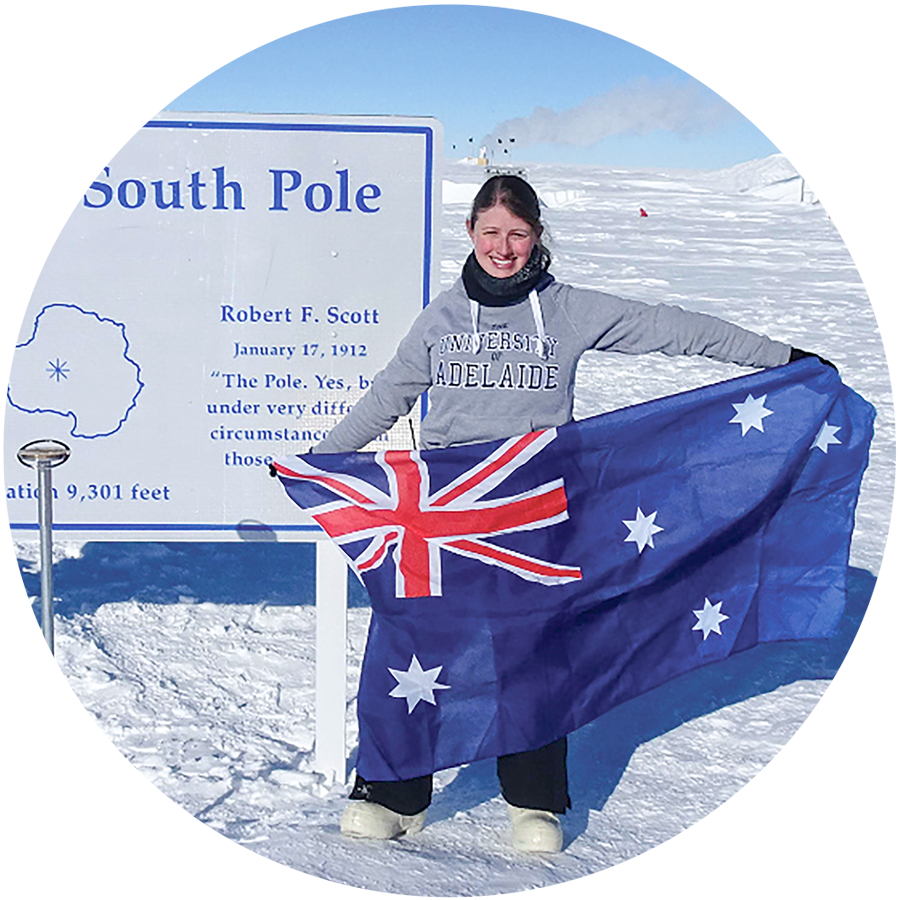
From student to astrophysicist
Sally Robertson - University of Adelaide
"Astrophysics is awesome! I have wanted to do this since I was a kid, and the space science and astrophysics degree opened up many opportunities. I was able to work on IceCube for my PhD, make a trip to the South Pole, and now, get to continue this research at the University of California, Berkeley." - Graduate of the BSc (Space Science & Astrophysics)
B
Business development manager
Mix business know-how with scientific inquiry to help develop, manufacture or market products which require specific discipline knowledge due to their complex and innovative nature.
Think food safety, medicines and medical testing equipment or perhaps even precision agriculture.
C
Computer scientist
Apply your scientific knowledge when designing computer-based solutions that address information management and processing problems in space, defence, telecommunications or business data processing and analysis.
Communicator or teacher
With scientific knowledge and understanding in such incredible demand worldwide, one of your most rewarding career paths could be to ‘turn the scientific light on’ for others.
You could engage the public as a science educator or journalist. You might develop a ‘citizen science’ app. Or maybe you’ll argue for science-backed change in a cinema-release documentary.
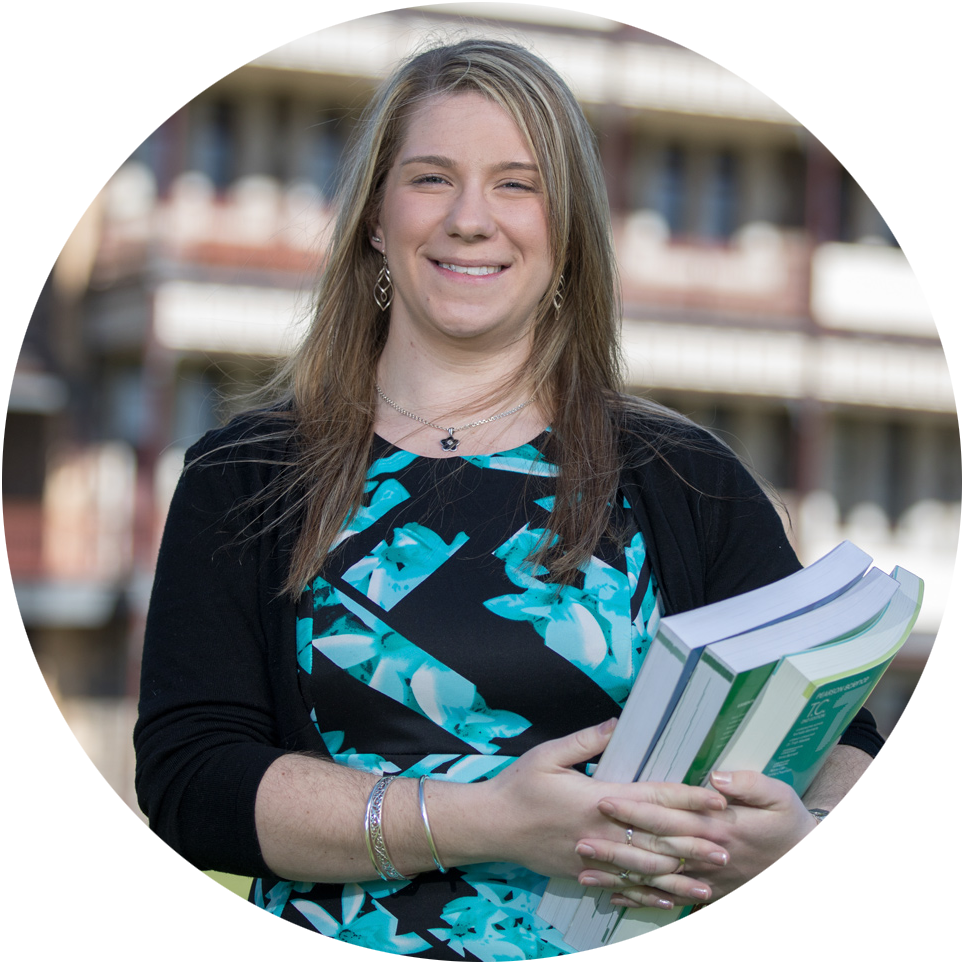
From student to science teacher
Alyssa Lumsden - Sacred Heart College
“There's nothing more rewarding than watching my students discover their talents and helping to foster them through experience." - Graduate of the BSc (Marine Biology)
D
Data scientist
Data scientists have already changed our lives—from optimising Internet searches to speeding cancer research and informing corporations’ financial decision-making.
Tomorrow you could build deep learning pipelines to guide autonomous air taxis, precisely match manufacturers’ supply to fluctuating demand or continuously enhance farms’ productivity based on real-time data feeds.
Defence industry scientist
Work in the defence sector performing lab experiments, researching global trends and developments in your field of expertise, engage in modelling and simulation exercises and provide recommendations to senior management on research and development.
E
Entrepreneur
If Elon Musk can do it, so can you. Entrepreneurial scientists can blaze trails in any field.
You could develop and market anything from state-of-the-art space-travel technology and life-changing pharmaceuticals, to disease-preventing pet care products, new and sustainable food products, and waste-converting energy delivery.
G
Geophysicist
Geophysicists are the people who know why there might be gas in one part of the sea over another or why there is an oil deposit in this geological structure compared to that one.
You might monitor the earth’s movement with minute precision to help minimise the impact of earthquakes, or discover new subglacial lakes beneath ice caps.
Geoscientist
Right now, geoscientists search for deposits, drill for diamonds and classify geological discoveries.
The field’s brightest are beginning to virtually explore unmapped terrains with 3D modelling, repair mining’s environmental impacts and even attempt the interruption of tsunamis and earthquakes.
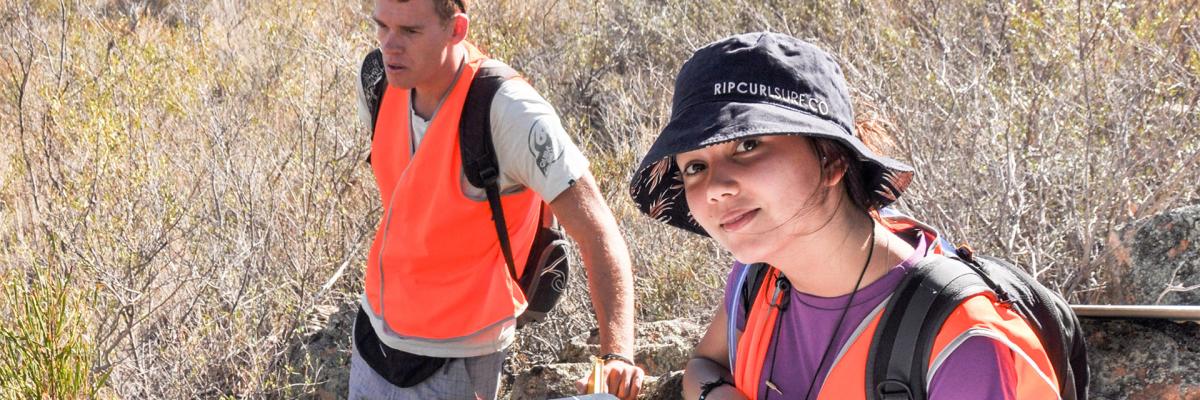
L
Laboratory technician or manager
If you love working in a lab, this job is a great option.
You will assist scientists by collecting and preparing samples, carrying out experiments and recording and presenting results for critical analysis. Once you gain experience you might manage a small team of people to ensure the smooth running of the laboratory.
M
Materials scientist
In the past, material advances - such as plastics - propelled powerful tech developments.
Materials scientists are now boggling minds with things like metal foams for animal prosthetics, fire-resistant building material coatings, unbreakable medical gloves and blast-proof concrete.
Meteorologist
Understand, predict and monitor regional, continental and global weather or set your sights beyond the stratosphere on space weather looking at geomagnetic storms, solar winds and ionospheric disturbances...
P
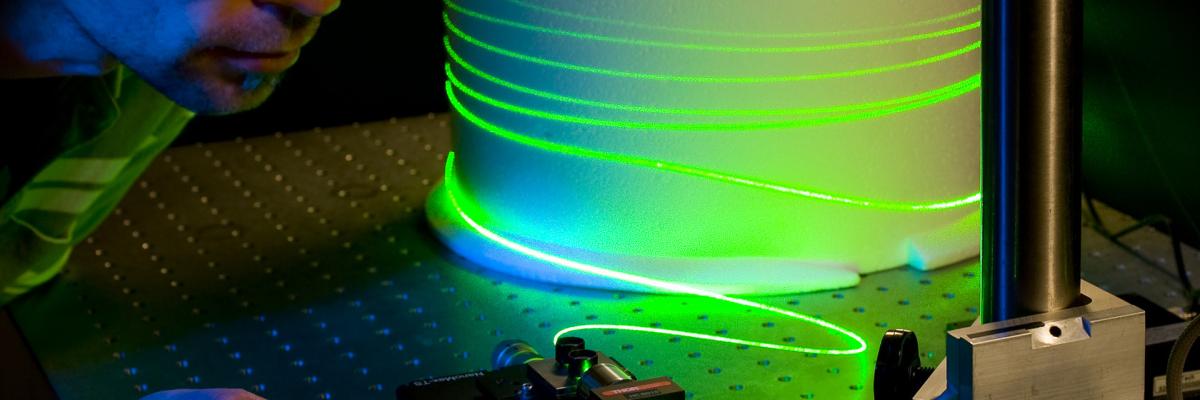
Policy officer
Scientists are under increasing pressure to create world-changing interventions; from gene editing to driverless cars, science needs policy officers to ask questions about the social and political implications of these innovations.
As a policy officer you might use your technical knowledge to ensure new environmental legislation is based in sound scientific evidence.
Physicist
Explore how energy and matter interact. Most physicists spend their time conducting research for hospitals, private industry research centres or universities.
You may also be involved in the design of scientific equipment such as particle accelerators and lasers.
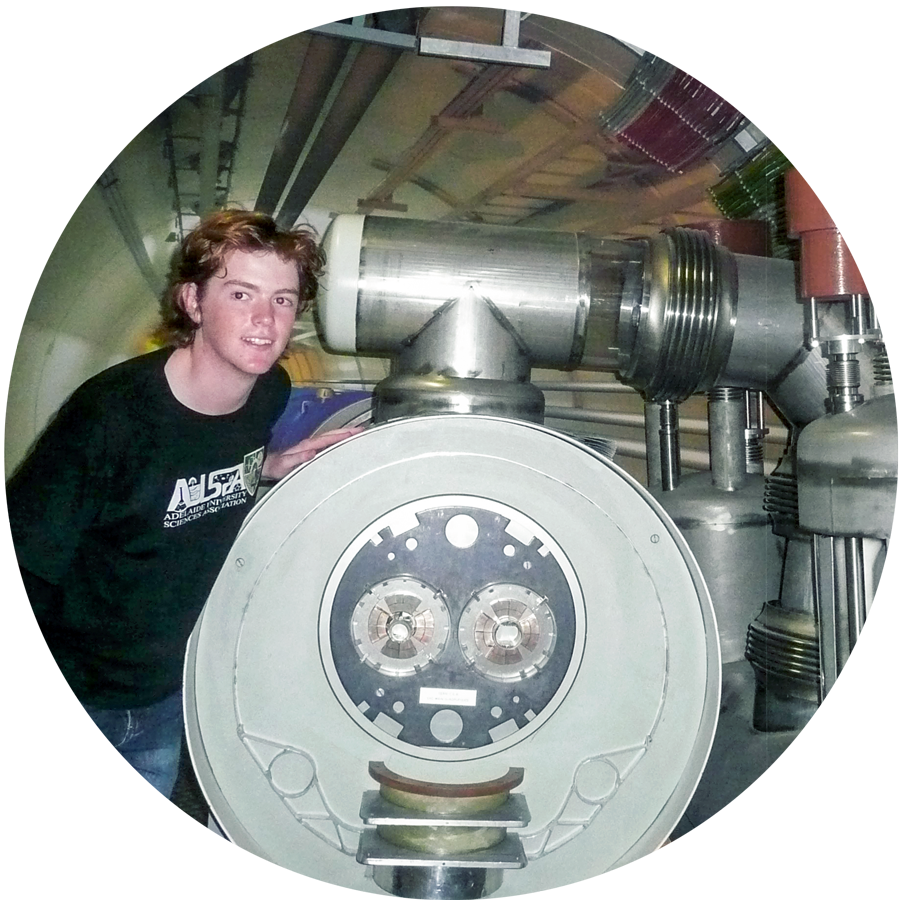
From student to high-energy physicist
Ben Geytenbeek - University of Cambridge
"Through experiments like the Large Hadron Collider and astrophysical and cosmological observations, we can probe for new physics that will provide deeper understanding of our universe and drive technological innovation for generations to come.
"The Gates Cambridge scholarship enabled me to be at the forefront of groundbreaking research such that I can make a valuable contribution to the knowledge of humankind." - Graduate of the BSc Advanced (physics major)
R
Remote sensing scientist
Use new, advanced and remote technology, such as satellites and drones, to analyse objects or events without having to be in physical contact with the environment you are assessing.
Research & development manager
What’s your scientific pleasure - astrophysics? How does research with a company like SpaceX sound? Or one of Australia’s growing number of space start-ups?
If biotech’s more your thing, how about R&D for a giant like Samsung Biologics? Perhaps you’d like to consult to organisations like Adelaide’s Futuris Corp on future farming? Research opportunities are everywhere.
Researcher
Australia has numerous federal scientific research organisations, such as the: CSIRO; Defence Science and Technology Group; Australian Antarctic Division; and Australian Institute of Marine Science. South Australia has many too. You’ll do important work and regularly collaborate with universities and industry.
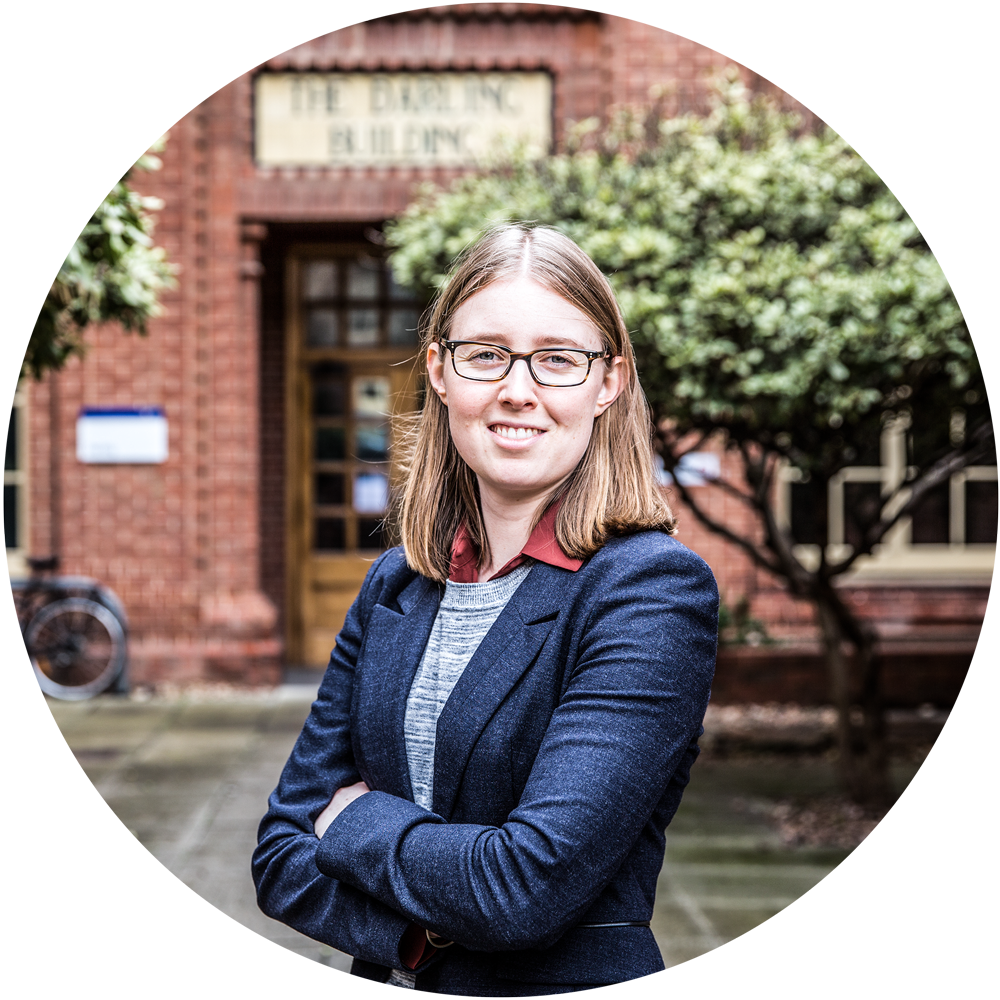
From student to particle physicist researcher
Dr Phiala Shanahan - Massachusetts Institute of Technology
“At the University I was able to work closely with world leaders in my field and learn from them in an incredibly supportive environment. It was the best possible start to my academic career.” - Graduate of the BSc (High Perf Comp Phys) / PhD in physics & astrophysics.
S

Image courtesy Nick Chang
Space scientist
When mankind first went to the moon, it was using computer power the equivalent of a modern-day smart phone. Now, we’re in the age of supercomputers.
Increasingly sophisticated technology can deliver deep research findings on astronomical movements, galactic evolution and as-yet-unanticipated phenomena. And space scientists help deliver the satellite images and communications we use in so many aspects of our lives.
Specialist
Countless thriving businesses owe their success, in large part, to staff with scientific expertise.
Picture yourself leading R&D for Virgin Galactic, managing environmental sustainability for an ecotourism developer, or overseeing cybersecurity for a major defence contractor.
From student to specialist & entrepreneur

Dr Jonathan Hall - Presagen / Life Whisperer
“The University was a place where I could find like-minded people who loved the things I wanted to learn about. Because of that, I have the skills and mindset and patience to tackle many problems in science or industry, and create my own jobs and business opportunities in society.” - Graduate of the BSc (Optics & Photonics) / BSc Honours (Mathematical Physics)
U
University academic
Research universities are absolute hives of scientific discovery. There are over 1,000 in the world - and Adelaide Uni is one of them.
Academics generally combine research, teaching and administrative duties and regularly collaborate with leading companies and research organisations all over the globe.
What will you study?
- Bachelor of Applied Data Analytics - NEW
- Bachelor of Laws and Bachelor of Science
- Bachelor of Science
- Bachelor of Science (Advanced)
- Bachelor of Science (High Performance Computational Physics) (Honours)
- Bachelor of Science (Mineral Geoscience)
- Bachelor of Science (Space Sc & Astrophysics)
- Bachelor of Science and Entrepreneurship
- Bachelor of Teaching (Middle) with Bachelor of Science
- Bachelor of Teaching (Secondary) with Bachelor of Science
- Honours Degree of Bachelor of Science
- Honours Degree of Bachelor of Science - NEW
- Honours Degree of Bachelor of Science (Advanced) - NEW
